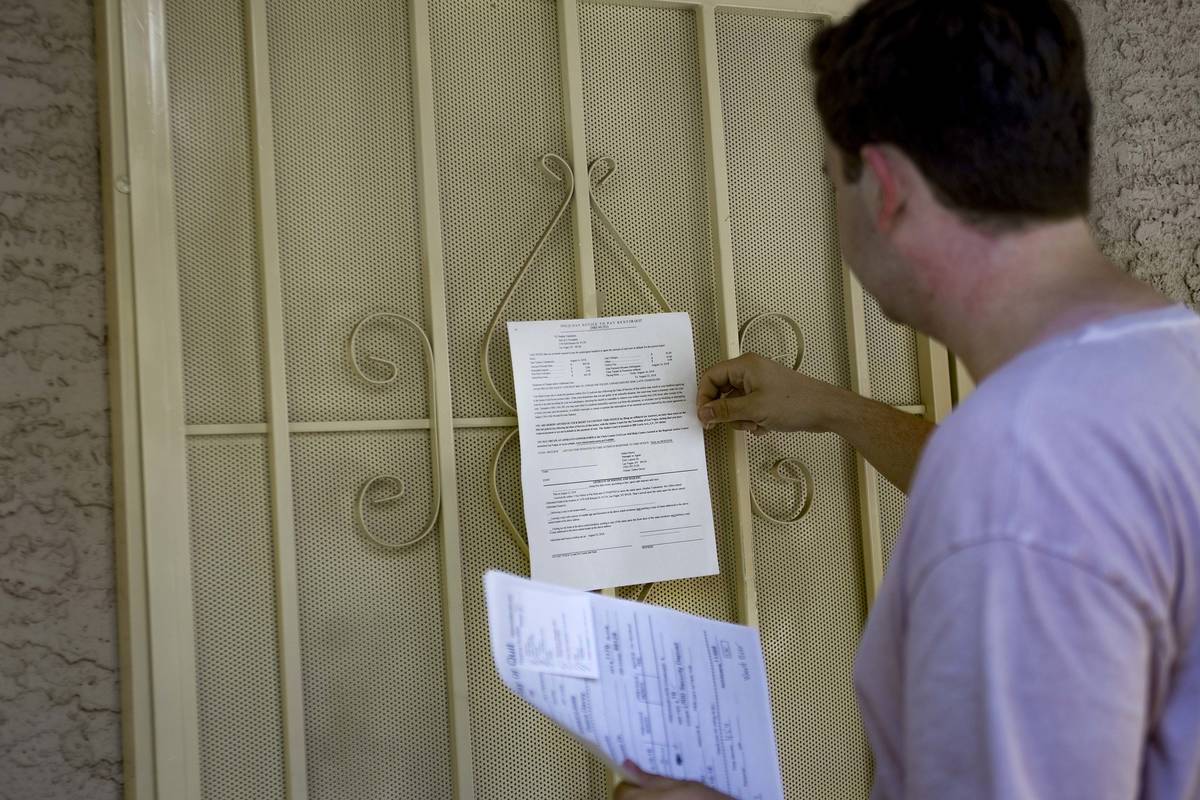EDITORIAL: My property ‘has literally been hijacked’
Much has been written about the need to help Nevadans struggling to make rent payments during the pandemic. Last month, President Joe Biden extended a federal ban on evictions through March. Gov. Steve Sisolak has issued two such statewide moratoriums, the latest in November, which also remains in place until the end of next month.
These sweeping actions treat property owners as mere collateral damage. Yet not every landlord is a real estate conglomerate holding dozens of lucrative rental units. And for those small-time landlords who count on rental income to make ends meet, the eviction freeze has created its own set of hardships.
“They didn’t take the deed,” Joe Gelman said, “but the property has literally been confiscated.”
Mr. Gelman, who now resides in Virginia, owns a rental home in northwest Las Vegas. He bought the property in 2003 as his first home. When he later decided to upgrade, he kept the house as an investment to cover college costs for his children.
For the past eight or nine years, he’s had a steady tenant. But last June, when he told his lessee that he would be selling the property to tap the equity for tuition, the man stopped paying the rent. “From that moment on,” Mr. Gelman said, “I never heard from him.”
Mr. Gelman had little recourse when Gov. Sisolak issued his first eviction “pause.” He dipped into his accounts to cover the roughly $950 in monthly expenses necessary to keep the mortgage, HOA payments and other expenses current. When that moratorium expired in October, Mr. Gelman successfully had the tenant removed.
But the renter appealed and — armed with hardship forms from the Centers for Disease Control and Prevention, which has issued the federal eviction order under the dubious guise of slowing the spread of COVID — prevailed in District Court. Since then, Mr. Gelman said he has had no access to the property and is unable to move forward with selling the home. In addition, the tenant is now delinquent on his water bill, which will likely also become Mr. Gelman’s responsibility.
“I can’t even inspect my own property,” he said.
Mr. Gelman isn’t interested in incurring the legal expenses necessary to regain control of the home, even if that were possible. State and federal pandemic relief programs aren’t directed at small-time property owners. And he remains aghast at how easily the government was able to seize his land without making him whole.
“Basically, the property has been hijacked with the full backing of the government,” he said. “There has been no consideration as to my rights as owner of the property at all. … This is clearly unconstitutional. I’m going to be out thousands of dollars. All I want is my property or to be compensated for my property.” The governor, Mr. Gelman said, is placing the burden “on small people like me.”
Theoretically, both the state and national eviction actions allow tenants only to delay their obligations until the “emergency” passes and demand they make payments when possible. Practically, however, Mr. Gelman and others like him have no expectation of every being made whole.
The Fifth Amendment prohibits the government from taking private property for public use absent “just compensation.” But both state and federal agencies are arrogantly operating as if they are governed by no such constitutional restraint. At the very least, landlords such as Mr. Gelman are owed their out-of-pocket expenses while state agents prevent them from making use of their property.
No doubt many tenants have endured hardship during the pandemic. Federal, state and local financial assistance programs exist to help. But blanket eviction bans not only trample the property rights of landlords, they discourage long-term investment in the rental market, potentially driving up costs and exacerbating affordability issues. As virus numbers continue to improve and unemployment levels stabilize, both Gov. Sisolak and the CDC should — if the courts don’t do it for them — significantly narrow any eviction moratoriums to minimize the injustices already endured by landlords such as Joe Gelman.






















